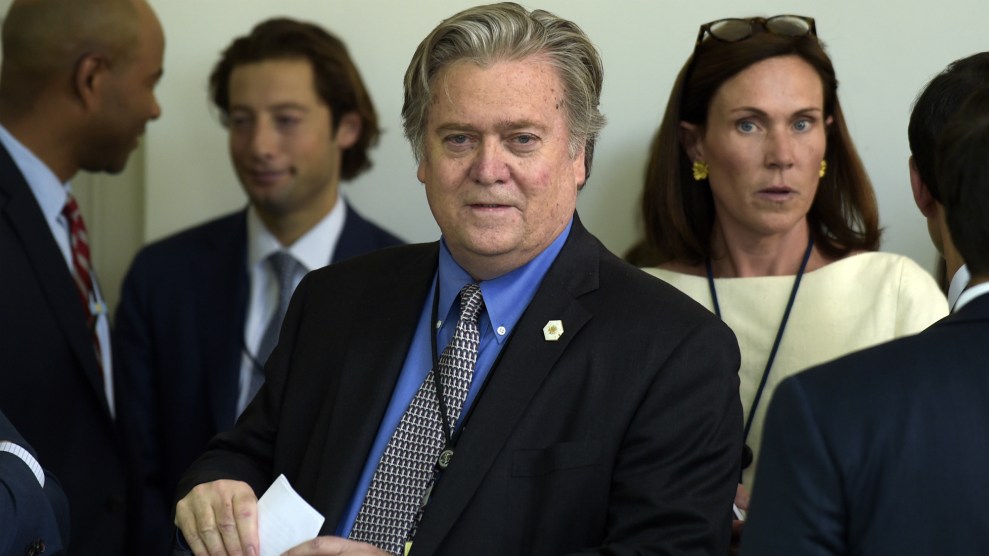
Susan Walsh/AP
Last month, when the Trump administration released the ethics waivers it had granted top White House staffers, one stood out. It “retroactively” allowed senior officials to communicate with news organizations that had employed them. The waiver seemed clearly aimed at White House strategist Steve Bannon, the former executive chairman of Breitbart.
President Donald Trump banned his top appointees for at least two years from interacting or communicating in any significant way with their former employers, under an executive order he signed shortly after taking office. But from the outset of the Trump administration, there were reports that Bannon was in contact with his former Breitbart colleagues. In March, watchdog group Citizens for Responsibility and Ethics in Washington filed a complaint with White House Counsel Don McGahn about Bannon’s continued relationship with Breitbart.
Several Democratic senators, including Elizabeth Warren of Massachusetts, sent a letter last month to Walter Shaub, director of the Office of Government Ethics, asking for more information on which ethics rules apply to Bannon. Shaub responded on Wednesday, putting in writing his concerns about the waiver covering Bannon.
First of all, Shaub noted, the waiver is neither signed nor dated. A signature is a basic requirement for the waiver to be in effect, Shaub wrote, citing Trump’s own executive order. Second, Shaub said, the whole concept of a retroactive waiver misses the point of the system.
“The putative retroactivity is inconsistent with the very concept of a waiver, which is to take decisions regarding the appropriateness of an employee’s participation in covered matters out of the employee’s hands,” Shaub wrote. “By engaging in a prohibited matter at a time when the appointee does not possess a waiver, the appointee violates the rule. Although the White House may later decide that such a violation does not warrant disciplinary action, the subsequent issuance of a waiver would not change the fact that a violation occurred.”
Shaub and the Office of Government Ethics are limited in their ability to enforce any punishment for violating the rules, since they were imposed by the administration itself. But Shaub told the senators that he would be asking the White House for an explanation and would follow up with a report.
Shaub’s full letter, which also details which ethics rules apply to Bannon, can be read below:

















